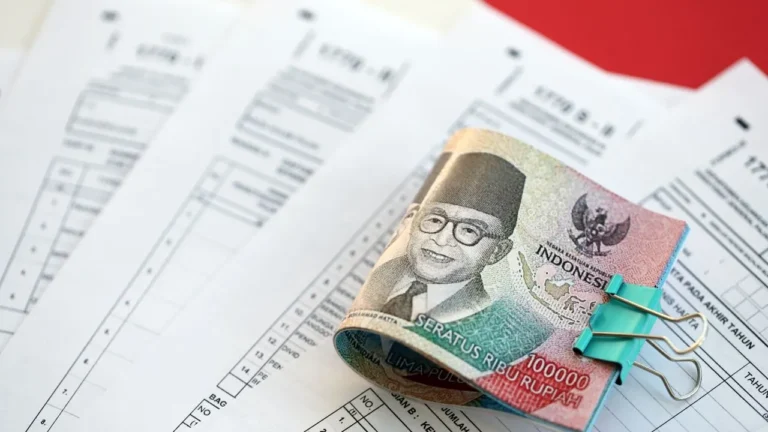Table of Contents
ToggleAre you into property investment in Bali? Everyone who has been to Bali and Indonesia has in mind how to invest in a property in Bali.
How to invest in the property market in Bali and Indonesia?
There are several ways to enter the market for property investment in Bali (comprehensive guide for investors before investing in property, especially in Bali). The market offers different possibilities for off-plan projects, apartments, villas, and hotel rooms. The type of product depends on the investor’s profile and budget. While a new investor will prefer to invest in an off-plan villa, other investors will prefer to buy land and develop their villa themself for a higher Return on Investment.
Off-plan projects offer payment and allow smaller budgets to enter the market. However, we recommend paying attention to the section of the project and having a strong contract with the developer by checking its license. Recently, some developers have been unable to finish their projects.
Despite the type of project, the property investment in Bali needs to be approached cautiously:
- Define the best legal structure before your property investment in Bali, Lombok or the rest of Indonesia
- Choose the appropriate location
- Perform due diligence on land, building permits, contractors, developers
- Never pay a deposit to a seller without a contract reviewed by a lawyer
- Choose an independent legal or notary
- Optimize your tax structure
- Apply for license
Make navigating real estate in Indonesia easy
Save time and money by letting ILA’s team of experts guide your real estate journey in Indonesia. We can help with due diligence, land title transfers, notary services, contract drafting and reviewing, building permits, various licences and more.
Find more information about our broad range of real estate services, or reach out today for a free consultation.
A stable market with high-return investment
It is not unusual to see a 15% return on investment per year from the short-term rental, while other markets usually offer 5 to 10%. Those numbers obviously depend on the location and your tax exposure.
The stability of Bali offers an excellent occupancy above 50% with 80% in well-known locations such as Canggu and Seminyak. Other areas, such as Nusa Dua or Amed, have more difficulty reaching this threshold.
You can often recoup your entire investment money in 6 years. This means you can expect to purchase additional property quickly, and the levels of passive income can be off the scale if you invest for long periods of time. Digital nomads, in particular, often eschew a permanent residence in favour of owning or buying investment properties in places like Bali.

A market entry cost is lower than in the mature market
Bali and Indonesia’s market has not reached their maturity and still offer lower entry prices than buying a property in Australia or Europe. The gap with western, Singapore, China or Tokyo is still important. It is feasible to enter the market with 150,000 USD or less and have a property to rent out on Airbnb or booking.com. Some actors nowadays provide fractional investment where investors can even buy a part of the property with only 25,000 USD.
Out of the property to accommodate tourists in the form of villas or hotels, the entertainment industry is also following the trend. Restaurants, beach clubs, and nightclubs are also developing and accommodating different and long-term investors.
Read also: Bali Property Market Trend 2023 – 2024
What are the limits, or what should you be cautious about before investing in property?
1. Property Regulations
The development has not always been done in line with the regulations. Unfortunately, some agents or sellers have contributed to offering some properties in areas that are, for example, not able to get a proper building permit and, as a consequence, a proper license to operate on Airbnb or other platforms legally. Buyers are exposed to sanctions the day the government is going to reinforce the law. Indeed during this period, the investor can take its return on investment but it might happen before.
2. Tax Required
The government is indeed responsible for not reinforcing the law, but developers also fail to inform clients about the regulation. Tax is the perfect example of this omission. Taxation is an important factor that can affect the investment. Having proper tax planning on this is crucial.
3. Property Ownership for Foreigners
Foreigners can own properties in Bali and Indonesia under a company. This allows foreigners to acquire the property and have the property under the company name. The advantage is that the seller has no rights on the property at all after the transaction. The other advantage is also to make the income legit. The advantage is also in terms of tax.
The most common practice has been for years to lease land for a certain period of time. This form of investment can reduce the capital needed to enter the market. A lease at 150,000 USD for 20 years may let you get a return on your investment.
4. Financing and Mortgage
As foreigners, it might be difficult to get a loan in Indonesia. Most of the time, the payment of properties requires an upfront payment. Some banks might be able to discuss how to finance the investment of a second property if you already own the first property.
As a reminder, having a leasehold agreement is not an ownership. It is a long-term rent, and as a consideration, the bank will not lend money to the buyer or be able to have a mortgage on it.
First-time buyers are probably recommended to enter the market by trying to get a loan in their home country or purchase a freehold property.
5. Building Permit and Design
Buildings in Indonesia require a building permit (residential, commercial) divided into 2 documents called PBG and SLF. Indonesia does not recognise architects who do not have a license to apply for a building permit in Indonesia. It is possible to hire an architect, but this one will need to collaborate with a local architect.
Furthermore, some areas have restrictions, and it is sometimes difficult to build more than 3 or 4 floors. Some special authorizations are necessary, and we recommend talking to a professional about this topic before starting your plan.
5. Understanding the Zoning Area of Property
Bali and Indonesia have classified lands in different zones with color codes. Some areas are not limited to some activities, and building is prohibited in some areas. There are sometimes some derogations. Having proper due diligence on the land is important to understand what you can do with the property. Usually, Indonesia classified its areas into:
- Green zone: Agriculture
- Yellow zone: Residential
- Pink zone: Tourist
- Red zone: Commercial area
6. Apartment versus villa
In the last few years, Bali has seen several apartment projects developing around the island. Those projects offer the possibility to some investors to own a property without having to set up a company. Indeed, the regulation allows foreigners to buy apartments in Hak Pakai. It might be a solution for a first property investment in Bali.
7. Owning a Property Legally and Doing Business With A Property.
You can own a property and not necessarily be allowed to get income from this property and vice versa. Owning a car doesn’t mean you can become a car rental company or just give your car to a rental company to lease your car to a client. Real estate agents do their job well and know how to find the right property. Property management companies such as Bukit Vista know how to manage your property. Consultants and legal know how to secure your investment and make your business legal.
8. Renting a property on Airbnb in Bali
Bali or Lombok has seen the number of listings increase considerably in the last few years. However, renting a property on Airbnb is not allowed in Indonesia for foreigners under their personal name. So, how do you do it legally?
Most of the time, the Villa management company proceeds with the business license under their name and gets the income under their account, cutting a percentage fee. However, this operation is not 100% legal as it consists of using a nominee and is not tax efficient as the tax for a non-resident is at 20%. The same principle applies if the lessee uses the name of the landowner despite the owner having proceeded a Pondok Wisata.
The other legal option is to set up a company and apply for a hotel license if the building is over 4000 sqm or to apply for a license called Vila. This license is open to PT PMA and can allow foreigners to handle the villa if they are the owner of the villa. It is crucial to check the legalities before any property investment in Bali.

Where to Invest in a Property in Bali?
Best Locations to Invest
This is the lottery question. Bali’s vibrant property market is a tapestry woven with diverse offerings catering to various investor dreams. Let’s explore the hottest threads and guide you towards your perfect piece:
- Seminyak: The established queen, Seminyak, exudes luxury, offering premium shopping, dining, and entertainment. While Canggu basks in the limelight, Seminyak retains its timeless allure.
- Canggu and Pererenan: Boasting a meteoric rise, Canggu sizzles with development, attracting tourists, nomads, and expats. Prepare for vibrant energy, but be mindful of increasing traffic.
- Seseh and Cemagi: Seseh and Cemagi offer affordability and proximity to its bustling neighbour. New developments are starting there. Rice Fields are still surrounding the area.
- Nyanyi: Another Canggu neighbour, Nyanyi, presents another enticing investment opportunity with its unique appeal.
- Uluwatu and Bingin: This surfer’s paradise boasts breathtaking beauty and surging demand for villas. If you seek a patient investment with high potential, Uluwatu awaits. Similar to Uluwatu’s past, Bingin offers an early-stage investment with the potential for significant returns, which is ideal for the adventurous investor.
- Melasti, Pandawa, Ungasan: Those areas are classified in a touristic zone. The government has made important investments there. New beach clubs have risen in the last few years.
- Ubud: Escape the coastal frenzy and embrace Ubud’s serene charm. Lush rainforests, rice paddies, and cooler temperatures attract a steady stream of investors seeking a reliable performer.
- Sidemen: Similar to Ubud in its beauty and surroundings, Sidemen is an untapped beauty awaits in East Bali’s Sidemen. Witness the rise of a hidden gem and invest in rental properties poised for success.
Also read: Property Investment Trend in Ubud
Reminder
Consider your investment goals, risk tolerance, and desired lifestyle. This diverse market offers something for everyone, so choose wisely and weave your Bali property dream into reality.
Additional Tips
- Conduct thorough research before investing.
- Consult with a local real estate expert.
- Understand the legal landscape and regulations.
- Factor in ongoing costs like maintenance and taxes.
By following these guidelines and exploring the unique threads of each location, you’ll be well on your way to securing your ideal investment in Bali’s dynamic property market.
Contact us for strategic and investment consulting that fits your business needs. Read our blog for the latest information on business and finance.























